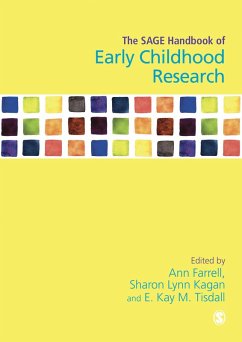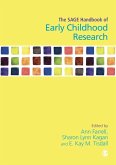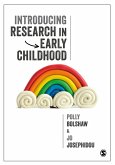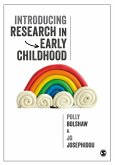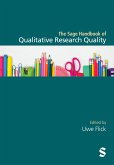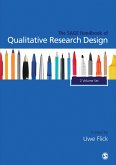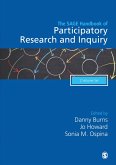Recent decades have seen an upsurge of research with and about young children, their families and communities. The Handbook of Early Childhood Research will provide a landmark overview of the field of early childhood research and will set an agenda for early childhood research into the future. It includes 31 chapters provided by internationally recognized experts in early childhood research. The team of international contributors apply their expertise to conceptual and methodological issues in research and to relevant fields of practice and policy. The Handbook recognizes the main contexts of early childhood research: home and family contexts; out-of-home contexts such as services for young children and their families; and broader societal contexts of that evoke risk for young children.
The Handbook includes sections on:
This Handbook will become the valuable reference text for students, practitioners and researchers from across the social sciences and beyond who are engaged in research with young children.
The Handbook includes sections on:
- the field of early childhood research and its key contributions
- new theories and theoretical approaches in early childhood research
- collecting and analysing data
- applications of early childhood research
This Handbook will become the valuable reference text for students, practitioners and researchers from across the social sciences and beyond who are engaged in research with young children.
Dieser Download kann aus rechtlichen Gründen nur mit Rechnungsadresse in A, D ausgeliefert werden.
The SAGE Handbook of Early Childhood Research is a major addition to the literature on early childhood. More than an introduction to the field, it offers significant challenges, and progress in thinking, for theory, research, policy and practice and for the relationships between those dimensions. Ann Farrell, Sharon Kagan and Kay Tisdall are extremely well-qualified to oversee such a collection, bringing as they do substantial expertise from three continents. Many of the contributors are equally distinguished and come from all over the world, making this a truly international volume. The focus is equally on majority and minority worlds, and the chapters include leading-edge contributions in fields as diverse as neuroscience and children affected by armed conflict. This book will have an important place on the bookshelves of everyone seriously interested in early childhood research.
Nigel Patrick Thomas
Nigel Patrick Thomas

